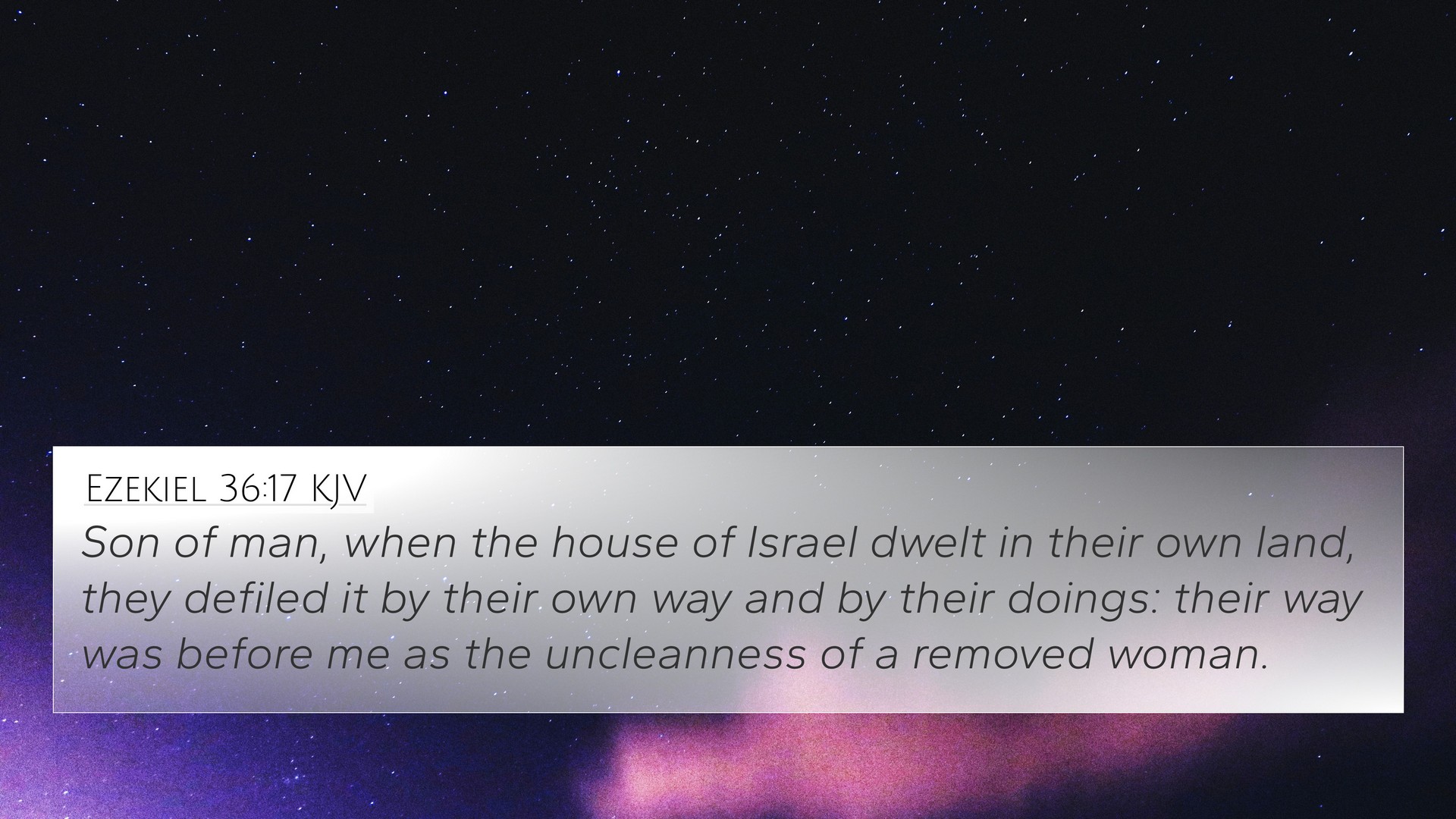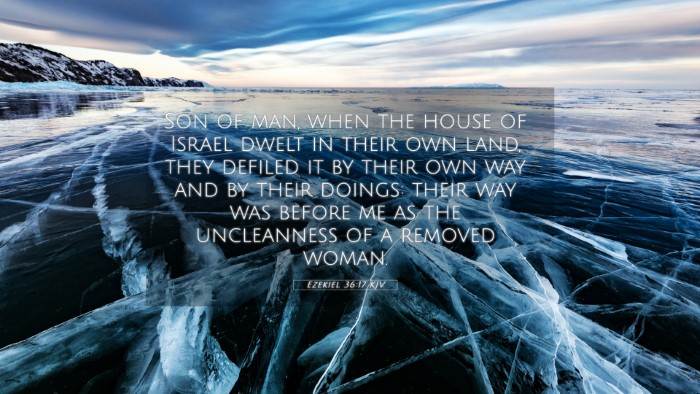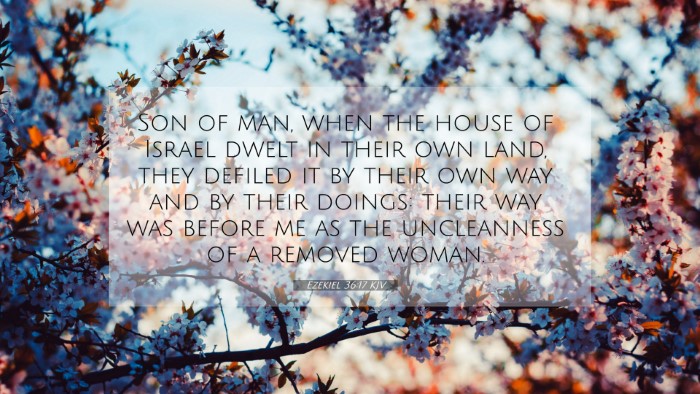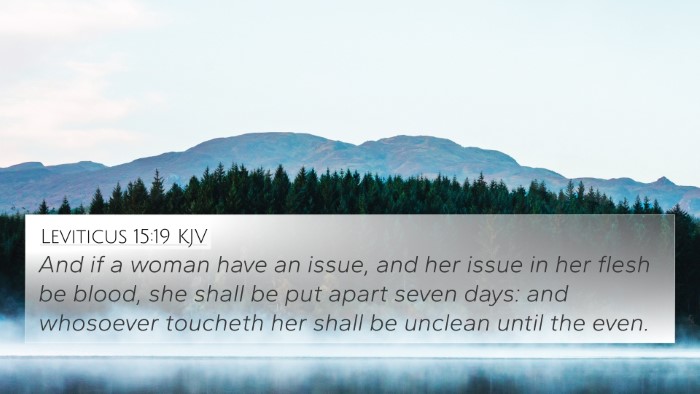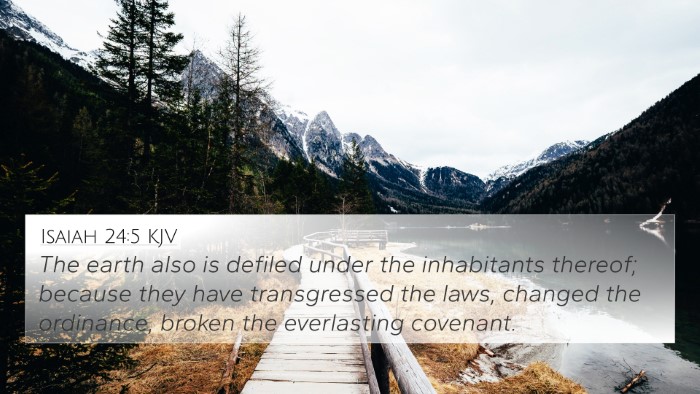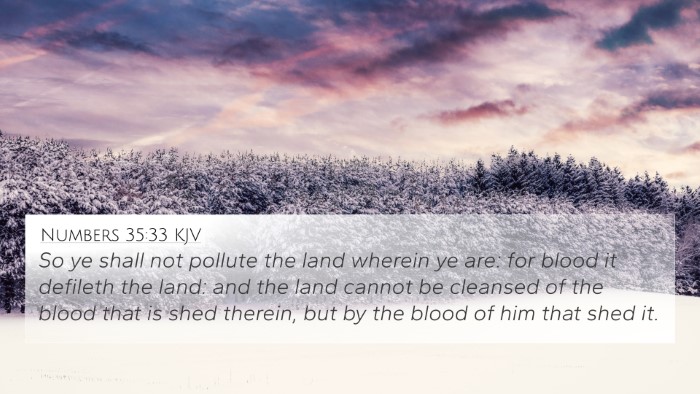Understanding Ezekiel 36:17
Ezekiel 36:17 states: "Son of man, when the house of Israel dwelt in their own land, they defiled it by their own way and by their doings: their way was before me as the uncleanness of a removed woman."
Verse Context and Significance
This verse is part of God's message to Ezekiel, addressing the people of Israel and their behavior while they inhabited the Promised Land. It highlights the spiritual and moral decay that resulted from their actions and how they strayed from God's commandments.
Commentary Insights
-
Matthew Henry's Commentary: Henry emphasizes the severity with which the Israelites treated their covenant with God. Their actions were likened to moral uncleanness, suggesting a betrayal of the relationship they were meant to uphold. The analogy used here depicts not just a physical defilement but a profound spiritual contamination that merited divine judgment.
-
Albert Barnes' Notes: Barnes elaborates on the metaphor of a "removed woman," relating it to the seriousness of Israel's sins. He points out that their transgressions were not mere errors but intentional acts of rebellion against God, indicating a need for repentance and restoration. This establishes a clear understanding of God's displeasure and the necessity for cleansing both the land and the people.
-
Adam Clarke's Commentary: Clarke focuses on the historical context, suggesting that this verse serves as a reminder of the consequences that arise from disobedience. He interprets “uncleanness” as a loss of holiness and the consequent distance from God, which underscores themes of both judgment and mercy that run throughout the prophetic literature.
Thematic Connections
The themes within Ezekiel 36:17 resonate throughout Scripture, particularly relating to the concepts of sin, judgment, and restoration. Several other biblical passages provide valuable cross-references that support these themes:
- Leviticus 18:24-30 - Highlights the consequences of defilement and how such actions lead to exile from God's blessings.
- Isaiah 1:4 - A powerful declaration of Israel’s sinful state, emphasizing the need for repentance.
- Jeremiah 2:13 - Illustrates Israel's forsaking of God, leading to destructive consequences.
- Hosea 9:10 - Draws a parallel between Israel's sinful behavior and its resulting fate, reinforcing the shamefulness of their actions.
- Romans 1:21-23 - New Testament parallel discussing the consequences of turning away from God’s truth.
- 2 Corinthians 6:17 - Addresses the theme of holiness and separation from sin.
- Revelation 21:27 - Describes the ultimate purity of God's kingdom, free from all uncleanness.
Tools for Bible Cross-Referencing
Studying connections between Bible verses can enhance understanding and bring deeper insights into the themes presented in Scripture. Here are some essential tools and resources for effective cross-referencing:
- Bible Concordance - An index that helps locate specific verses and their relationships across the biblical text.
- Bible Cross-Reference Guide - A systematic approach to identify related scriptures for thorough study.
- Cross-Reference Bible Study - Engaging in techniques that involve looking up similar verses to draw thematic connections.
- Bible Reference Resources - Compilations of verses that correspond with various topics and themes for quick reference.
- Bible Chain References - A method of studying Scripture by interconnected verses that lead from one concept to another.
Conclusion
Ezekiel 36:17 serves as a poignant reminder of the consequences of spiritual defilement while emphasizing the necessity of restoration through repentance. By exploring cross-referencing Bible texts, we can gain a fuller understanding of the interconnectedness of Scripture, from the Old Testament prophets to the New Testament teachings. As we navigate these thematic Bible verse connections, we enrich our faith and grasp the seriousness with which we should regard our spiritual walk.
